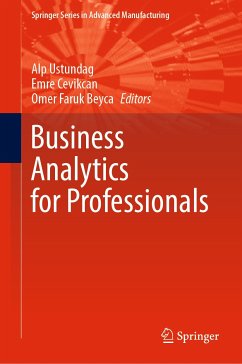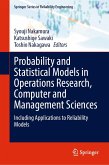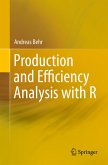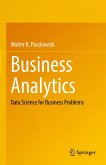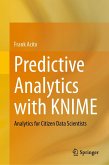This book explains concepts and techniques for business analytics and demonstrate them on real life applications for managers and practitioners. It illustrates how machine learning and optimization techniques can be used to implement intelligent business automation systems. The book examines business problems concerning supply chain, marketing & CRM, financial, manufacturing and human resources functions and supplies solutions in Python.
Dieser Download kann aus rechtlichen Gründen nur mit Rechnungsadresse in A, B, BG, CY, CZ, D, DK, EW, E, FIN, F, GR, HR, H, IRL, I, LT, L, LR, M, NL, PL, P, R, S, SLO, SK ausgeliefert werden.

